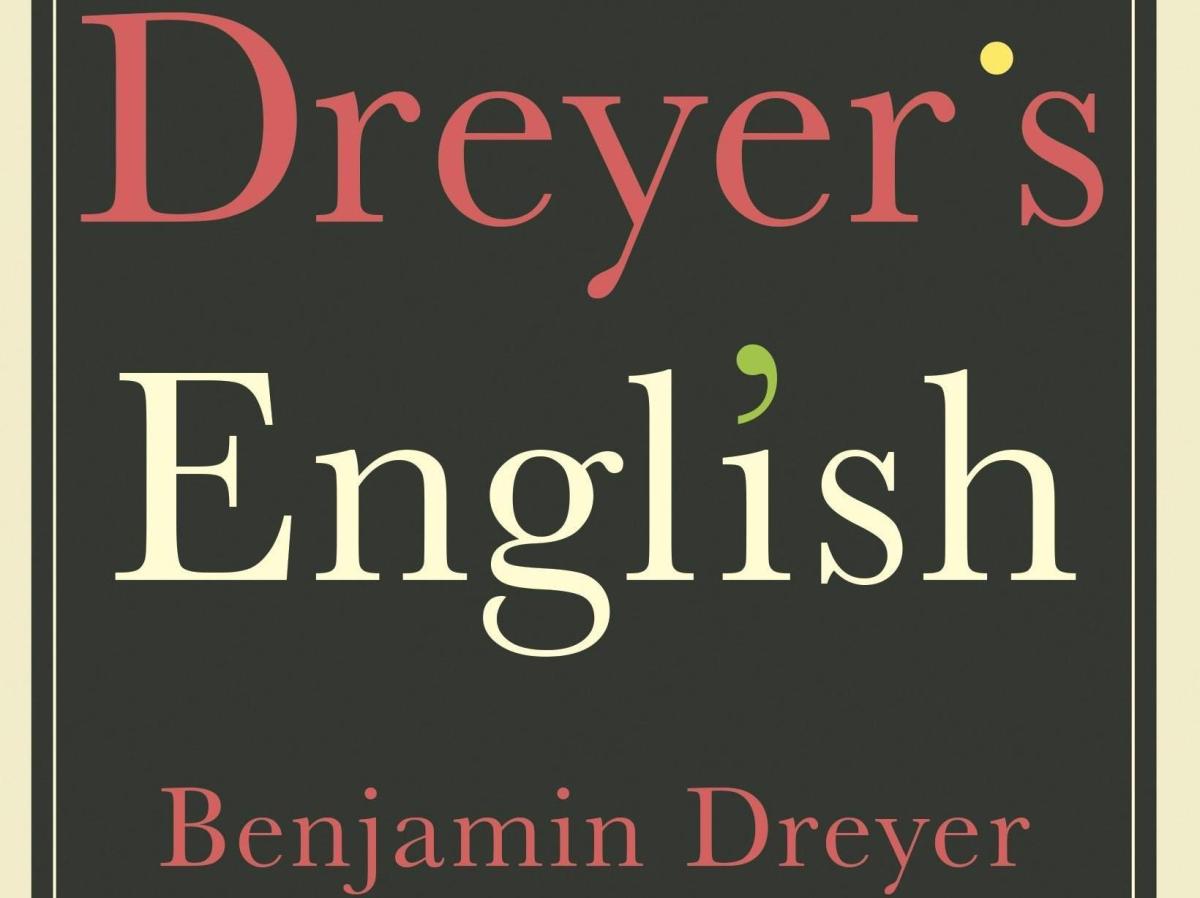Dreyer’s English by Benjamin Dreyer.
Language lovers can read Dreyer’s English from cover to cover just for sheer enjoyment. Because of its comprehensive index it can also be used as a reference book. The excellent cover design hints at the humorous way Benjamin Dreyer shares his knowledge and experience. The title is stylised as Dreyer°s Englìsh and proclaims in large print that this book is ‘An Utterly Correct Guide to Clarity and Style’. It is.
Using a conversational approach, Dreyer tells you about his career. He recounts episodes that have left their mark on him, such as what happened as a result of him pinning the maxim ‘Try to preserve an author’s style if he is an author and has a style’ to his door. Dreyer is amusing and witty, but deadly serious about everything that pertains to good writing. He challenges the writer to go for a week without writing ‘very’, ’rather’, ‘really’, ‘quite’, ‘in fact’, and a number of other over-used words, prompting this reviewer to hastily re-read the preceding paragraph.
In the chapter ‘Rules and Nonrules’, Dreyer gives cautious permission to break the most common rules when appropriate. He reminds the reader that conventions have their value, but that there are valid circumstances in which they not only can be broken, but should be broken.
Dreyer accepts that language evolves, and that it is appropriate to adapt to changes in practise. He grants that the supposedly genderless ‘he’ (embracing the feminine), which may have been acceptable a hundred years ago, is no longer appropriate. However, Dreyer admits that he is too old to accept the singular ‘they’, which in current usage has replaced ‘him or her’ or the dreadful ‘s/he’. Dreyer argues that sentences like ‘A boy’s best friend is their mother’ are daft. He is in favour of restructuring such sentences, such as ‘A mother is a boy’s best friend’.
There is a chapter called ‘A Little Grammar Is a Dangerous Thing’ in which Dreyer admits his hate of grammar jargon, and writes that even to this day he would be ‘hard-pressed to tell you what a nominative absolute is’. Another chapter deals with what he calls ‘the confusables’ in which examples like ‘descendant/descendent’ abound.
Among my favourite chapters is ‘Peeves and Crotchets’. Dreyer says, ‘I’ve never met a writer . . . who didn’t possess a pocketful of language peeves and crochets – words or uses of words that drive a normally reasonable person into unreasonable fits of pique, if not paroxysms of rage’. There are many edifying examples including ‘very unique’ and using ‘disinterested’ to mean ‘uninterested’. In the chapter ‘Notes on Proper Nouns’ he reminds readers that there is no apostrophe in ‘Finnegans Wake’. He adds that it is a ‘novel by James Joyce that you’ve either not read, not comprehended, or both, despite what you tell people.’ Touché.
Anyone interested in the written word will have a number of favourite publications about writing. They may be reference books like Fowler’s Modern English Usage, or books treasured for what they tactfully teach, like Stephen King’s On Writing or Lynne Truss’s Eats, Shoots and Leaves. And that list is likely to include reference works available on the internet such as Wikipedia and The Guardian and Observer style guide; indeed, the latter is recommended to its reviewers by ArtsHub. Unquestionably, the amusing, informative and fascinating Dreyer’s English deserves a prominent place among these.
5 stars ★★★★★Dreyer’s English
By Benjamin Dreyer
Category: Reference, Humor
320 Pages
Hardcover
$25.00
Published by Random House
29 January 2019
ISBN 9780812995701





